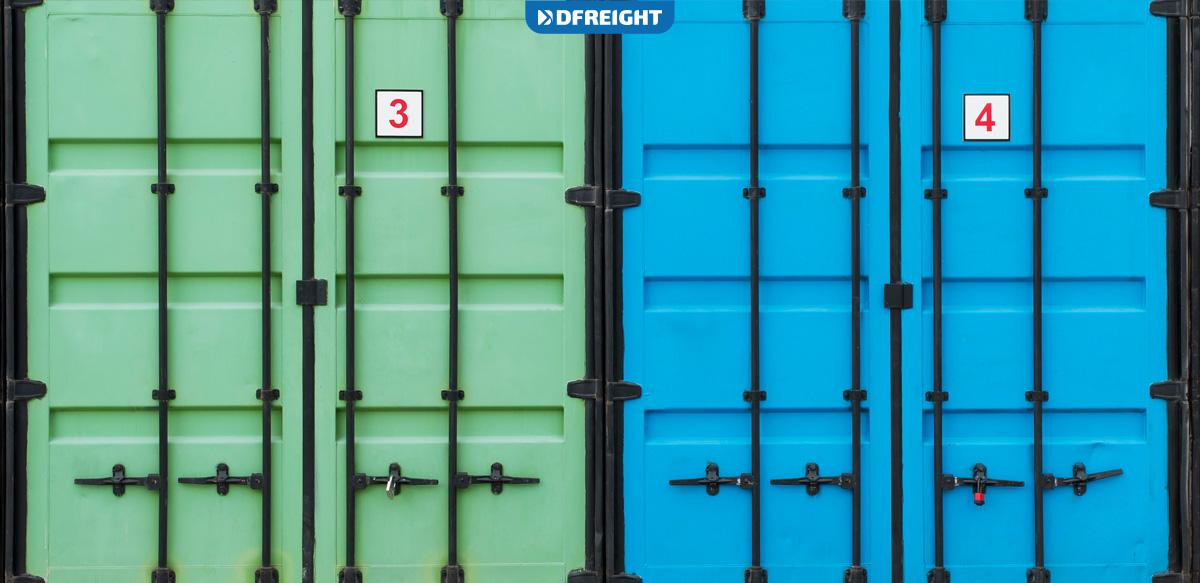Transporting goods around the world seems like a complicated task. Unexpected events could happen during the transportation process. One of the variables that result in higher expenses is transportation delays. Delays can lead to huge costs if loading and unloading time is not appropriately managed. Detention and demurrage are two types of these charges. Keep reading if you want to learn what detention and demurrage are, the difference between them, and how we can prevent paying this charge.
Table of Contents
What Are Demurrage and Detention?
In a voyage charter, the shipowner agrees to carry certain goods from a specific origin to a specified destination. The shipowner determines a certain amount of fare according to the nature, weight, and volume of the goods, the length of the transportation, and other variables. The fact that loading at the port of origin or unloading at the port of destination is outside of the control of the carrier or ship owner and may take a while is a significant problem in such charter arrangements. Therefore, according to the number of goods and equipment and the container loading and unloading capacity of ports, a reasonable period (free time) is determined.
What is free time?
You may have encountered “free time” when unloading and delivering containers. When a person or company enters a transfer contract with a shipping company, that time contract is specified as free time. Free time refers to when the owner of the goods can own the container at no extra charge. In general, we have two types of free time, which are:
Origin Free Time: Refers to the period beginning when a container is picked up from the container yard and ending when it is loaded and brought back to the container yard.
Destination Free Time: relates to the period needed for a full container to be picked up from a container yard, unloaded, and then transferred to the container yard.
If the unloading and loading operation takes longer than the free time, the renter will be required to pay an extra charge, at the agreed rate, for each day of delay. In this article, we’ll talk about two of the several kinds of these additional expenses associated with containers.
Demurrage
You must use the containers to convey the cargo, and after delivering the goods, you must immediately return the containers. Demurrage is an additional cost you must pay in exchange for delays in unloading your goods and returning the container. Knowing that demurrage costs vary from terminal to terminal and across various modes of transportation is beneficial. When it comes to determining demurrage rates, each vendor, terminal, warehouse, and container owner has its unique procedures. You must be aware of the transportation-specific demurrage policies.
To be clear, demurrage is the delay that occurs on “port” grounds. Your load will be subject to demurrage, for instance, if the amount of time between gating in at the origin port and departure or between the cargo arriving at the destination port and gating out of the port is greater than the specified value.
Detention
A detention charge is a fee assessed by a carrier to a shipper or consignee for using the carrier’s equipment beyond the allowed free time. The carrier typically sets the free period, as stated in the carrier’s tariff. Detention charges are also known as per diem charges. Detention charges compensate the carrier for using equipment beyond the free time allowed.
The charges are intended to cover the carrier’s costs, such as driver wages, for the time the equipment is detained. Detention charges can vary depending on the type of equipment involved, the length of the detention, and the specific carrier. In some cases, detention charges may be negotiated between the shipper and the carrier. The carrier typically invoices the costs to the shipper or consignee after delivering the shipment. In conclusion, you will be responsible for paying the detention if filled containers at the port of origin or unloaded containers at the port of destination are returned to the container yard after the stated time.
It’s good to know what charges you may encounter before transporting goods and get acquainted with different types of them. These charges sometimes lead to high costs for individuals and companies. You need to know the precise definitions of each carrier, shipping line, and port.
How Are Detention and Demurrage Charges Calculated?
A certain fee is established for extra charges rate and free days following the contract concluded between the owner of the cargo and the shipping firm. A period of time, usually between 10 and 21 days, is considered free time. The shipment owner will not be charged if they can empty the containers and return them within this time frame. However, beyond the deadline, extra charges are determined daily.
Detention and demurrage charges are typically calculated based on the time the freight is stored, the type of freight, and the shipment size. For example, a carrier may charge a per diem fee for each day the cargo is stored, a storage fee for each day the freight is stored, and a cleaning fee if the load is not unloaded within a specified time frame. The total amount of the charges will depend on the specific carrier’s rates.
These charges are usually calculated at customs. Accordingly, a fine will be imposed on the cargo owner for each additional day more than free time. Sometimes extra charges are also calculated for ships. This means that every day the ship is at the port due to a delay in unloading, the fine must be paid by the owner of the cargo.
Causes of Detention and Demurrage
You need to be aware of a few causes of detention and demurrage to manage your business expenses. Here are some of the most common reasons for these charges:
- Shipments are not picked up or delivered on time.
- The logistics provider does not offer flexible scheduling.
- There is a lack of understanding of the terms and conditions of a logistics contract, such as incoterms.
- The consignee is unaware of the time of arrival and the date of shipment and is, therefore, unable to arrange customs clearance and timely delivery.
- The consignee did not receive the documents in time for customs clearance.
- The consignee does not have the necessary budget to empty the container in time.
- The cargo received does not match the sales order.
- The container is stopped for inspection, which sometimes takes a long time.
- There is a disagreement between the carrier and the receiver.
Now that you know the significant causes of delays and severe fines, we will offer solutions to avoid incurring additional costs in the next section.
How Can Detention and Demurrage Charges be Avoided?
Even if the shipping and transportation process could encounter unforeseen issues, there are some things you can do to help lower the expenses. With proper management of equipment, labor, documents, and paperwork, detention and demurrage charges can be avoided. These are a few helpful solutions in this regard:
- Have Alternative Plans: Coordinating with a second truck is always a good idea in the event of sudden delays.
- Partner: Contract with professional and reliable freight forwarders to clear your goods quickly, so you do not face the problem of delayed unloading.
- Latest Information: Ensure you are familiar with port regulations and the newest customs procedures.
- Prepare Special Permits: If you are transporting food or animal products, use a system that addresses the possibility of delays. You can request more free time from the beginning.
- Choose the Right Port: Depending on the conditions of sale and delivery of cargo, choosing the port and the route is vital.
- Check the Goods Beforehand: It is good to ensure that the cargo is in good health and conforms to the quality you want before shipping.
- Read the Bill of Lading and the Contract Carefully: Reading all the clauses of the contract carefully can prevent your possible mistakes.
Unloading the freight as soon as possible is the best way to avoid detention charges, but it is not always possible. If you cannot unload the cargo immediately, try negotiating with the carrier. They may be willing to waive or reduce the charges if you agree to unload the freight within a specific time frame. Shipping smaller shipments is also an excellent way to avoid detention charges because it is easier to unload them quickly. By taking these steps, you can avoid costly delays and expenses.
Conclusion
In conclusion, detention and demurrage are two terms that are often used in the logistics industry. They both refer to charges incurred when goods are not moved promptly. It is crucial to avoid these charges whenever possible by taking a few steps, such as ensuring that shipments are picked up and delivered on time, using a logistics provider that offers flexible scheduling, and having a good understanding of the terms and conditions of your logistics contract.
DFreight is here to help clients have their cargo delivered without incurring any extra fees or inconveniences. Pre-shipment inspections, customs clearance, packing, and shipping are all handled by our logistics professionals, who are available around the clock.
FAQs
What are the benefits of detention and demurrage?
Detention and demurrage can improve the flow of goods in the logistics industry by reducing the time it takes to move cargo from the point of origin to its final destination. Detention can also help prevent cargo backlogs, which can cause customer delays.
How Are Detention and Demurrage Charges Calculated?
For calculating detention and demurrage charges, the amount of days or hours past the predetermined layover is multiplied by the demurrage rate.
Who will pay the detention and demurrage charges?
It is decided who will pay the detention and demurrage charges based on the contract’s provisions and which contracting party is accountable for the delay. However, in most cases, the shipper is the one who must pay the fine.
-
Shipping Fitness Equipment to/from Dubai
Let’s dive into the world of fitness equipment freight and discover how you can elevate your business to new heights.
-
Shipping Solar Panels for a Sustainable Future
In this blog post, we explore the intricacies of shipping solar panels, from packaging to international regulations and eco-friendly solutions.
-
A Comprehensive Guide to Shipping Coffee
In this blog post we’ll cover a comprehensive guide to shipping coffee around the world and explain everything you need to know about it.














